Interior Design that tells a Story – with Romlaboratoriet
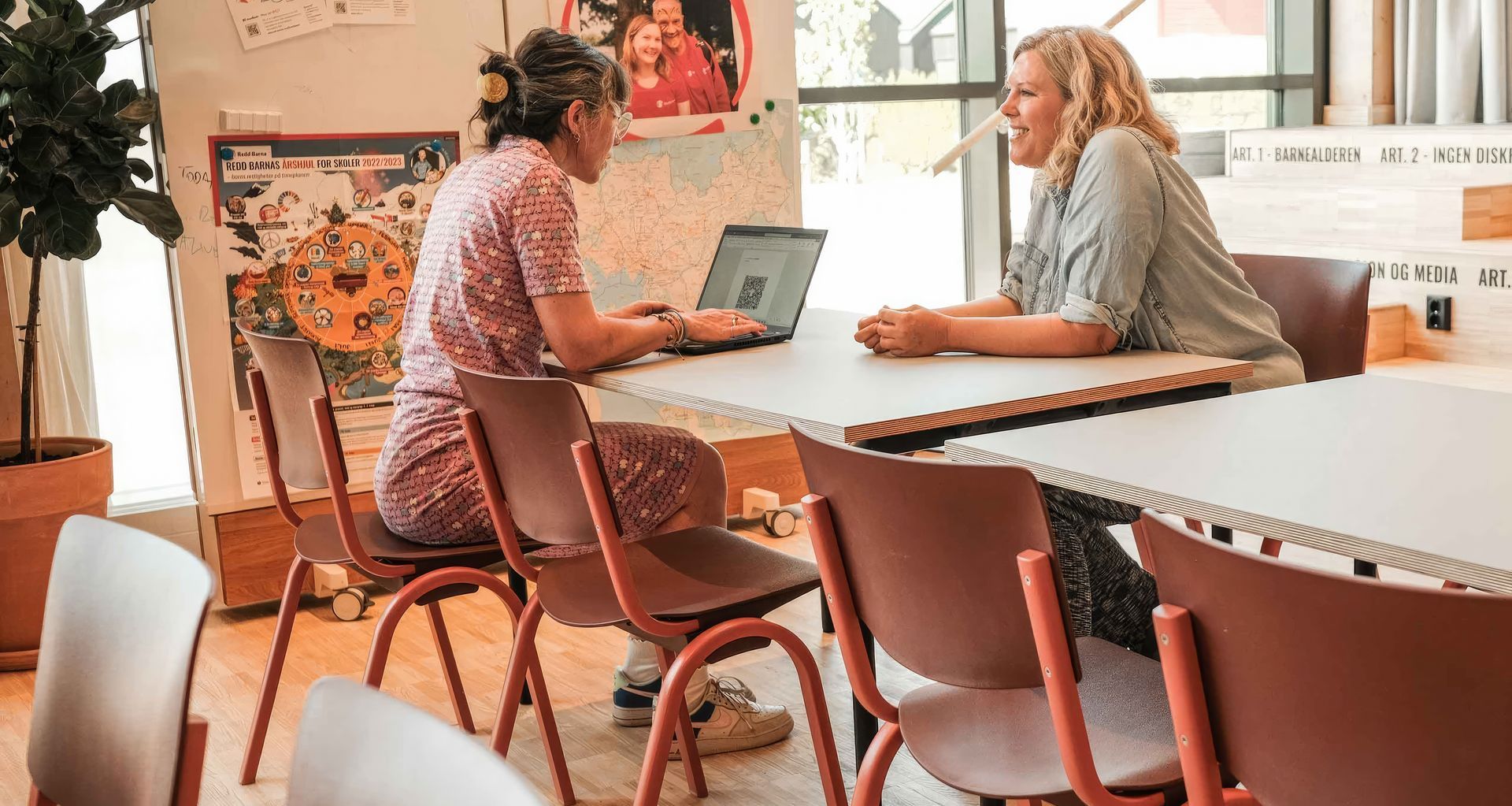

In the realm of design, sustainability has often been associated with compromise—whether it's sacrificing quality, performance, aesthetics, or cost. However, venturing beyond these conventional boundaries can unveil captivating and unique outcomes. Romlaboratoriet, an interior architecture firm, has woven this innovative spirit into the very fabric of their work. Their dedication to sustainability not only serves the environment but also results in workplaces steeped in narratives and adorned with distinctive furniture, providing businesses with spaces they can truly take pride in.
Kjersti Hoel Johnson, Partner & Interior Architect at Romlaboratoriet, explains, "When you set environmental concerns as your guiding principle, it’s amazing what you can achieve. Our challenge is to meet all the functionality and performance requirements expected, and at the same time create something special and unique for our clients.”
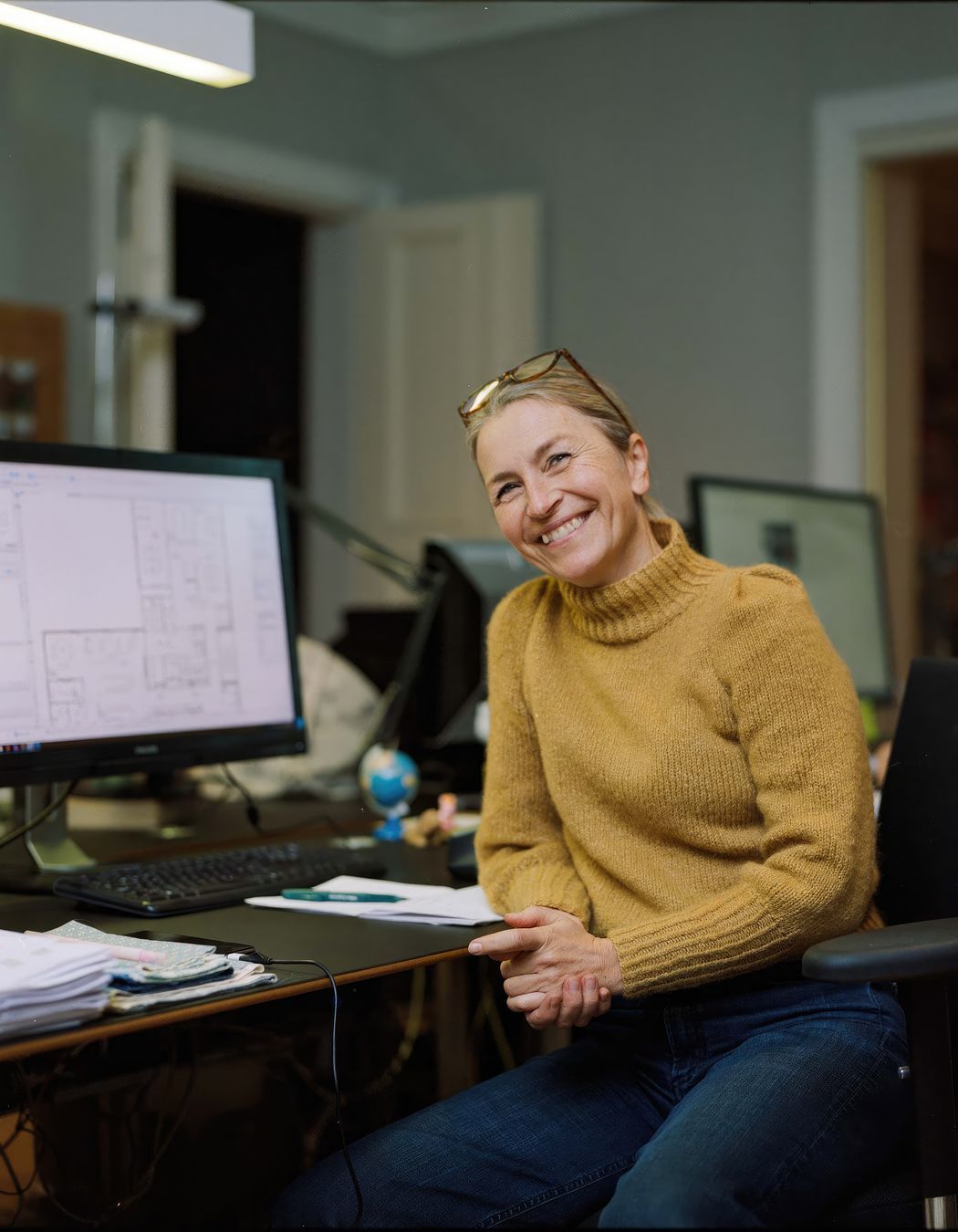
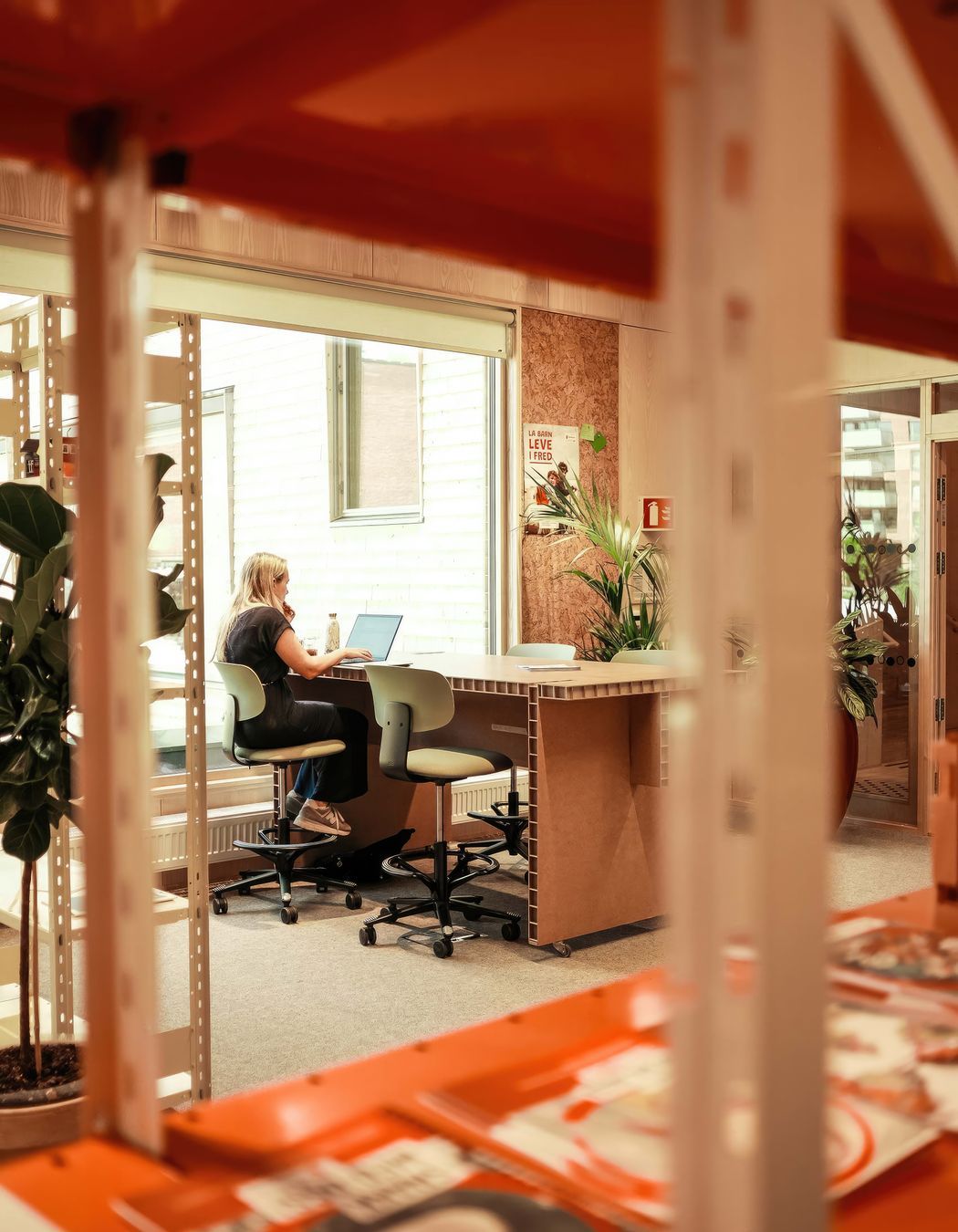
Creating Redd Barna’s workspace
The creation of Redd Barna's workspace serves as a testament to this ethos. Situated in the heart of Oslo, the new headquarters for the Norwegian charity, Redd Barna (Save the Children), became a canvas for Romlab's sustainable vision.
Kjersti: “It was really exciting to work on the Redd Barna workplace. As a collective, their aspiration was to craft a workplace that radiated responsibility and respect—for both people and the environment. They envisioned an interior that was grounded, conveying a sense that, as a charity, they spent wisely and judiciously. Our challenge was not just to make it aesthetically pleasing and comfortable but also to infuse it with captivating stories that give it character. At the same time, it had to remain highly functional, seamlessly supporting their work methods while ensuring the utmost comfort and well-being.”

The building
Phase one meant finding the right building. Designed by Oslotre, HasleTre is a 3000m2 office primarily constructed from natural materials. Here, high-density wood triumphs over steel and concrete, resulting in a structure emitting 60% less carbon than the conventional equivalent of its size. Designed for disassembly, it can (if required) be taken down piece by piece and rebuilt at a different location.
This sustainable foundation forms a captivating interior with exposed wooden walls and floorboards, demanding minimal embellishment. The space instantly evokes functionality and a profound connection to nature, making the building itself a storyteller.
The furniture
Furniture played a pivotal role, embodying Romlaboratoriet's commitment to reuse. Kjersti explains, "We made a conscious decision early on to champion the concept of reuse and recycle. Through a combination of reclaimed furniture from their old office, and sourcing "new" secondhand items, 60% of the furniture in the Redd Barna office is not new." In collaboration with three suppliers, items underwent a transformative "furniture spa," including repairs, cleaning, and upcycling. Additional second-hand furniture was sourced, and a third supplier undertook "novelty projects" to infuse eco-friendly character, such as repurposing large tables and incorporating sustainable acoustic panels throughout the workspace.
Kjersti: “We incorporated these beautiful fabric boards made from Norwegian wool felt, upcycled from the Sjølingstad Woolen Factory. Designed by Johan Ørbeck Aase for Elementa, these boards not only reduce noise and distractions but also add a touch of visual elegance. Plus, they provide meaningful employment opportunities for those with unique workplace needs, thanks to BYRG Kompetanse."

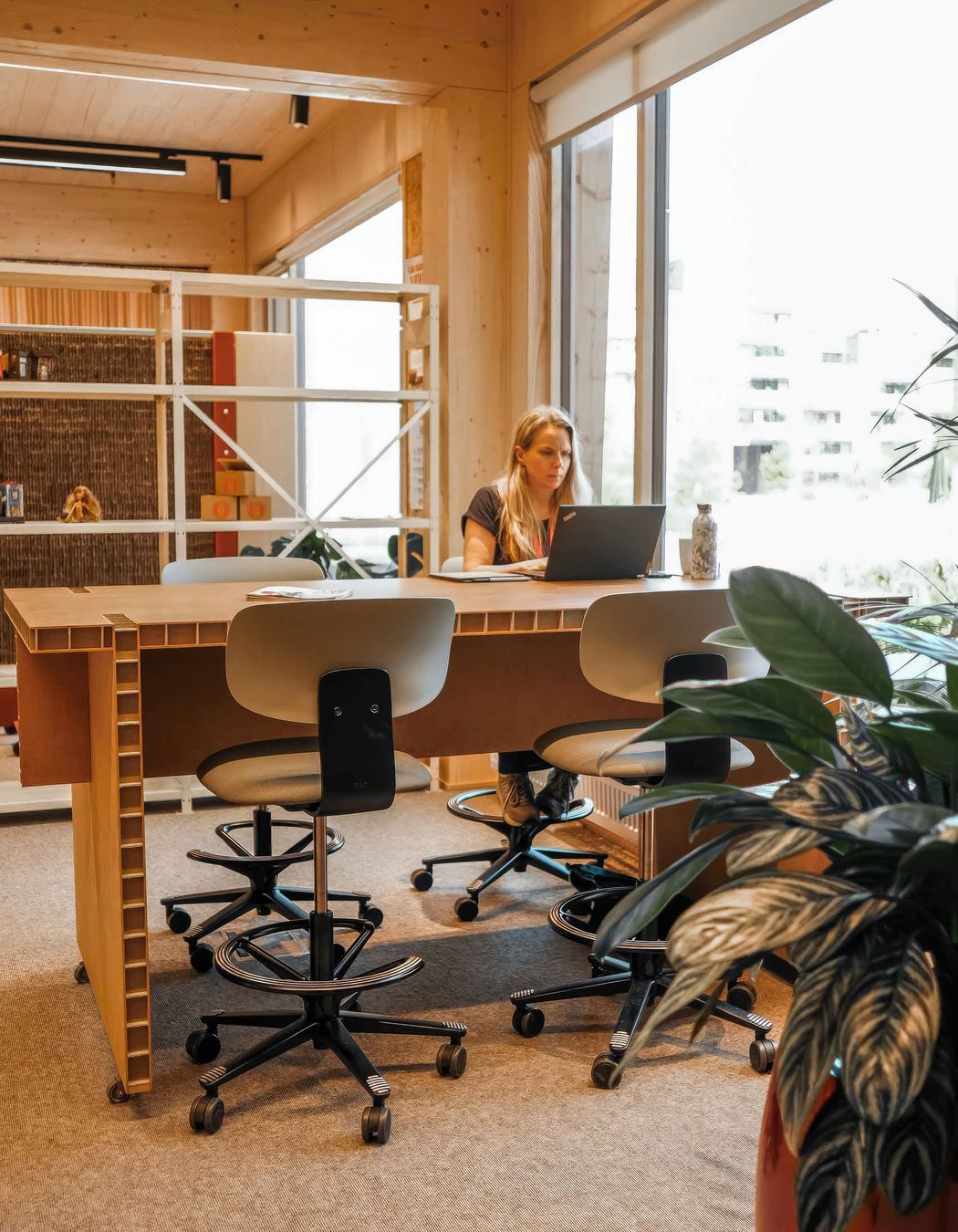
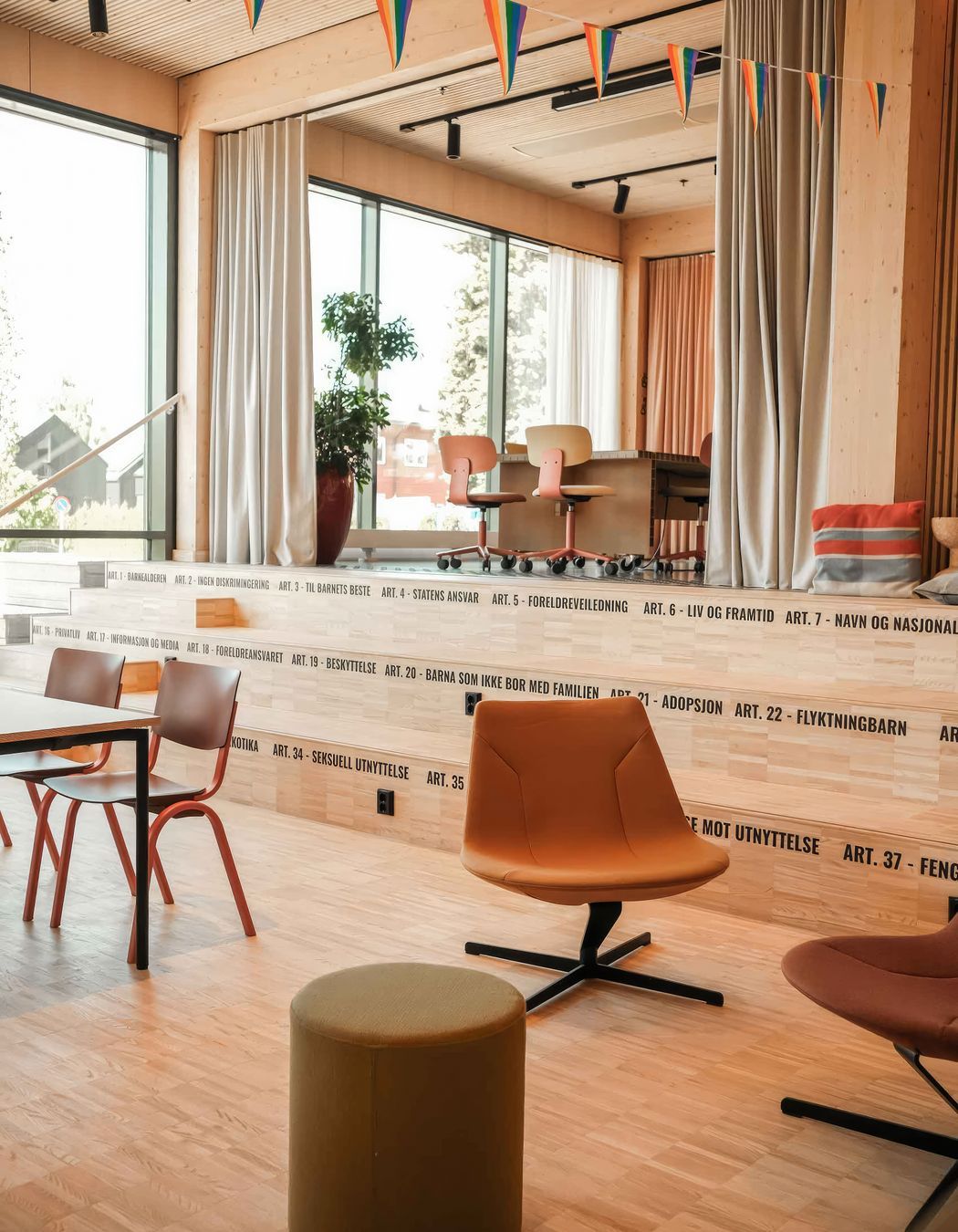
Flokk furniture
All of the new seating in the office was designed by Flokk, as Kjersti explains: “When we sought seating for this project, we aimed for designs that were not only comfortable, agile, and visually pleasing but also required minimal adjustments and met our stringent sustainability demands. With Flokk, we discovered a seating collection that ticked all the boxes.”
These furnishings aren't just functional; they each narrate their own stories. The HÅG Tion chairs dominate collaborative spaces, in a colour scheme adding warmth and personality. Made from up to 75% recycled materials, they also strongly contribute to the environmental approach. Similarly, HÅG Celi chairs, which are used in more social environments, emerged from a collaboration with global aluminium manufacturer Hydro, incorporating post-consumer aluminium—a testament to a joint research project that stands as one of Flokk's most sustainable designs to date.
The Redd Barna project in Oslo exemplifies that sustainability is not just about compromise but also innovation. When approached thoughtfully, environmentally friendly spaces can be achieved without sacrificing any aspect of design, resulting in captivating and unique workspaces that tell compelling stories.

